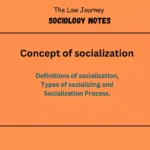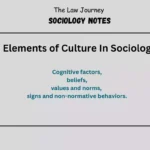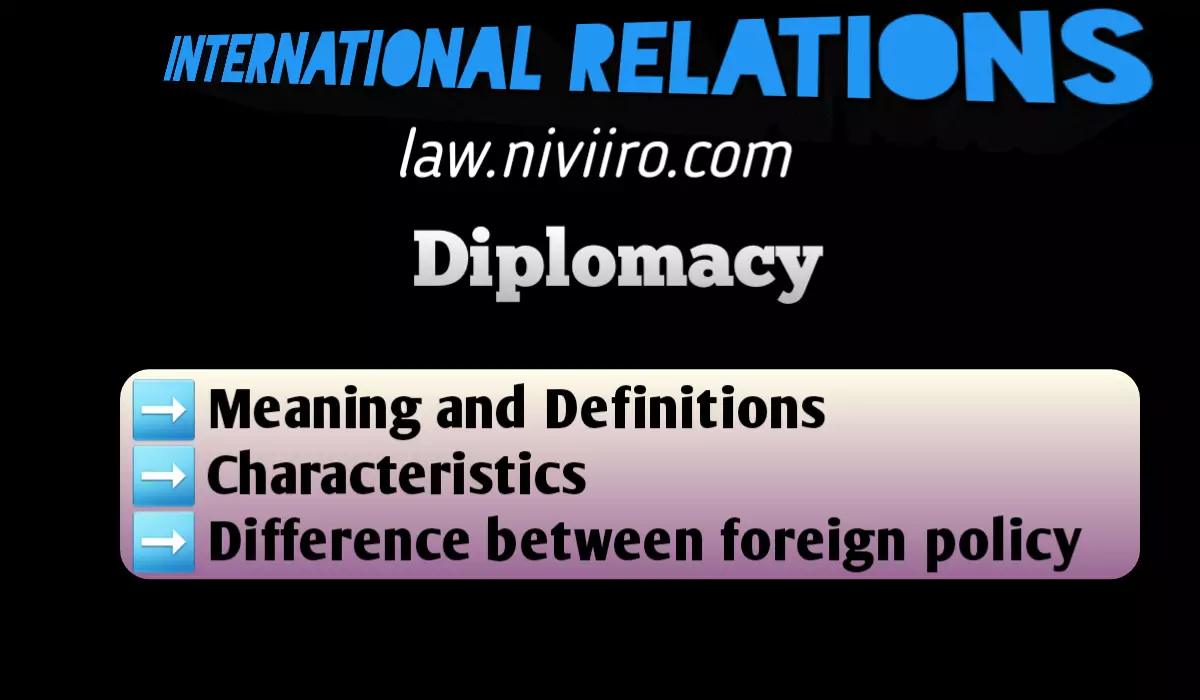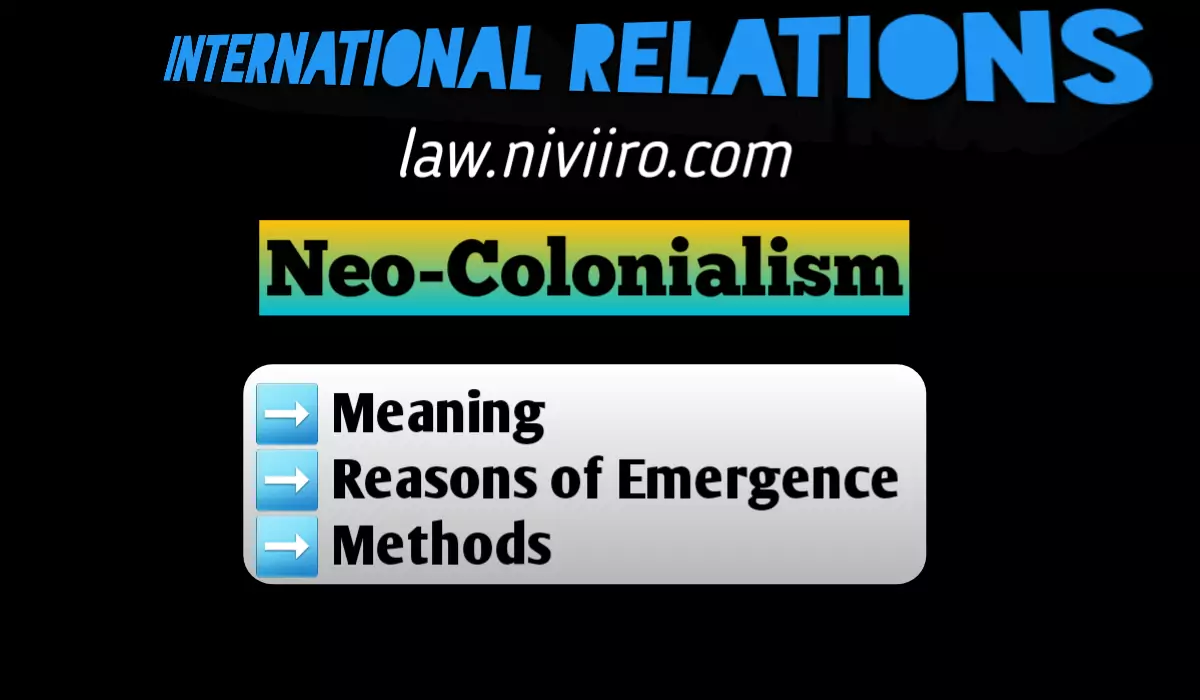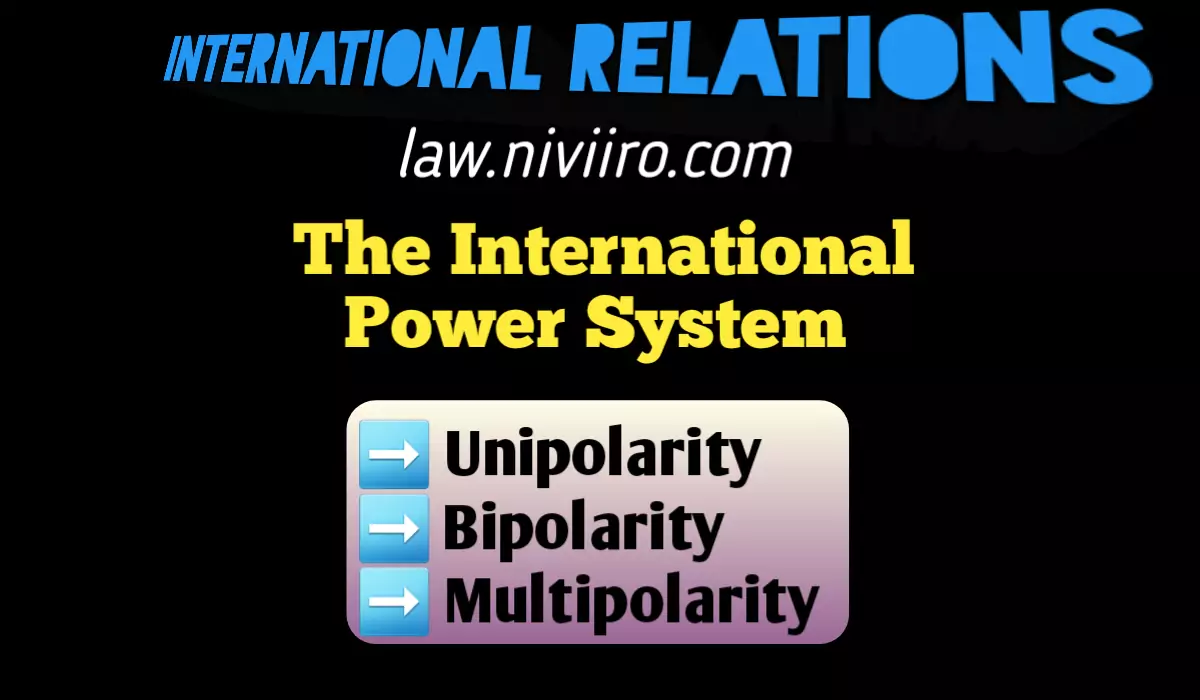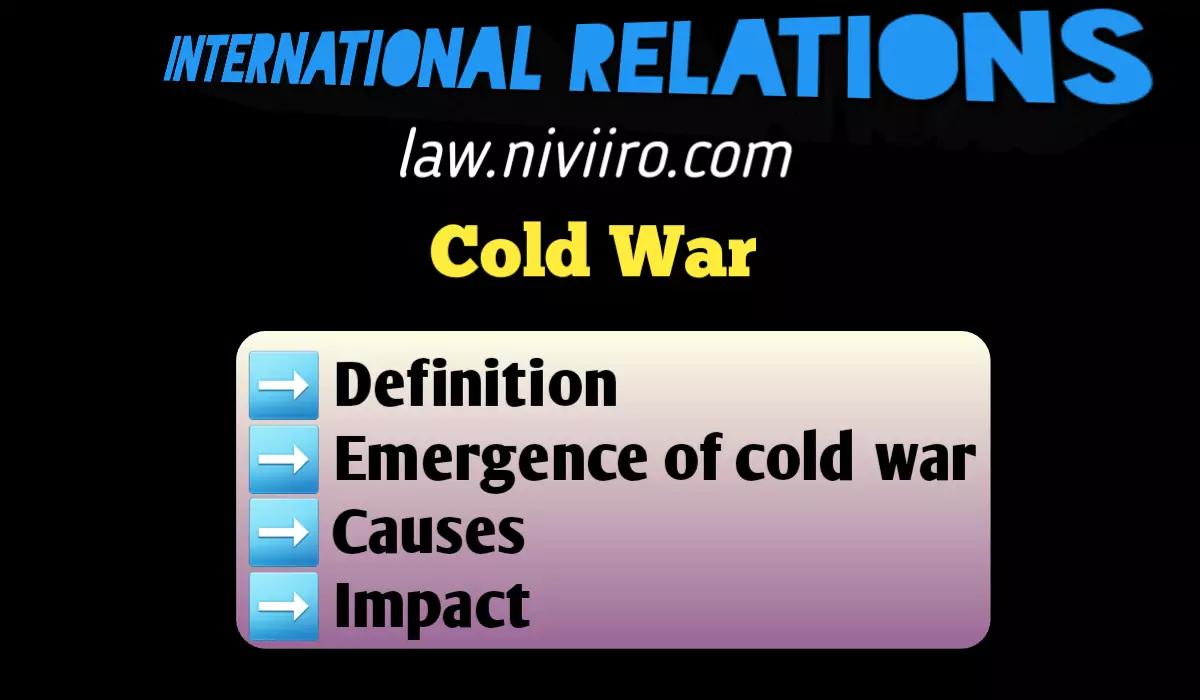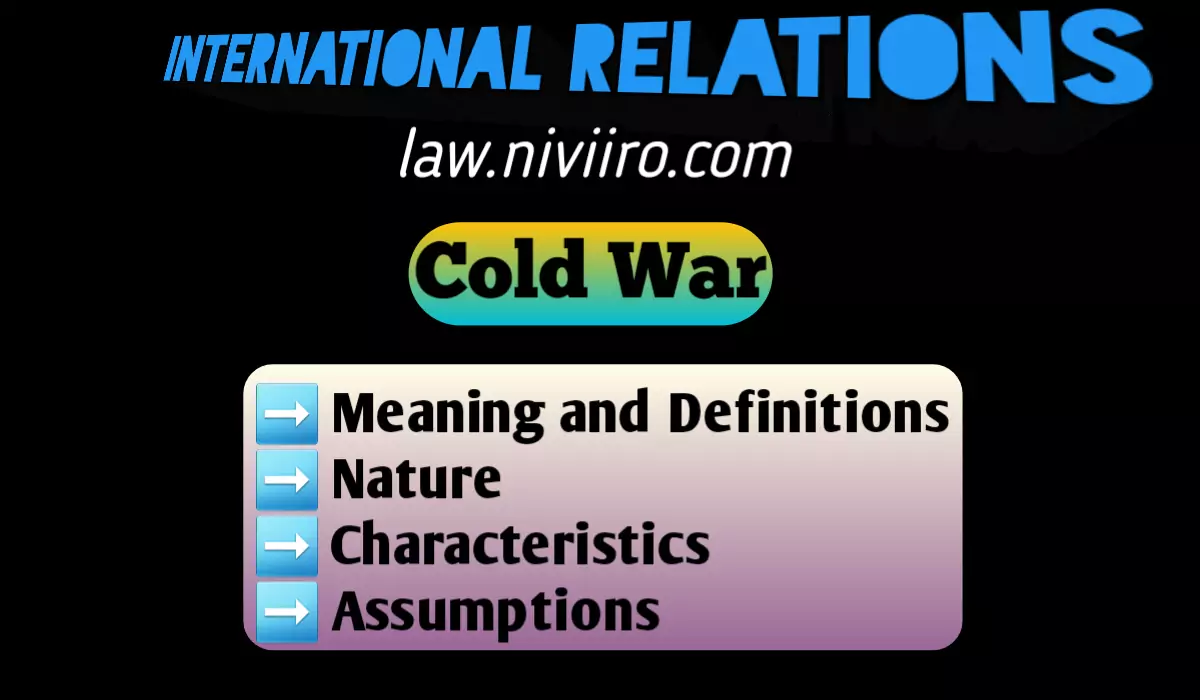Emergence of the word ‘Diplomacy’
The term ‘diplomacy’ has been derived from the Latin noun ‘diploma’ meaning a ‘double document’ or Greek Verb “diploun” which means “to told”.
All passports, permits, and imperial letters of recommendation were stamped on twin metal plates, folded, and stitched together in a specific way throughout the Roman era. These metal “diplomas” were in fact passes. In his 1796 essay “Letters on a Regicide Peace,” Edmund Burke used the word “diplomacy” for the first time. He used the phrase to refer to knowledge or expertise in handling international conversations and negotiations.
The term ‘diplomacy’ has been used to denote a variety of meanings.
(1) It is used as art of negotiations. Lester Pearson says, “Diplomacy does not make policy, it transmits and explains it and tries to negotiate arrangements which embody and secure it.”
(2) It is used for a branch of the Foreign Service.
(3) It is employed as a synonym for foreign policy’.
(4) J.R. Childs says diplomacy is “the process by which foreign policy is carried out”
(5) It is used for the process or machinery of negotiation, branch of foreign service and quality or gift of conducting international negotiations. Ernest Satow says, diplomacy is “the application of intelligence and tact to the conduct of official relations between the governments of independent states.”
(6) It is an abstract quality or gift, which in its best sense, implies the skill in the conduct of international negotiation; and in its worse sense, implies that more guildful aspect of tact. According to Schuman, diplomacy stands for an abstract quality, gift and skill to conduct international negotiations. Further it is also the science of fraud and favour. It is a two sided knife.
Definitions of Diplomacy
Ernest Satow: “Diplomacy is the application of intelligence and tact to the conduct of official relations between the governments of independent states.”
Nicholsan: “Diplomacy seeks to adjust national with international interests. It seeks by the use of reasons, conciliation and the exchange of interest to prevent major conflicts between sovereign states.”
The Oxford English Dictionary: Diplomacy is “the management of international relations by negotiation” or “the method by which these relations are adjusted and managed.”
Morgenthau: “Diplomacy is the task of forming and executing foreign policy on all levels. It has four tasks, (i) the determination of national objectives in terms of power, (ii) the assessment of the objectives of other states to similar terms, (iii) the determination of the compatibility of objectives and (iv) the employment of means suited to the pursuit of its objectives.”
Quincy Wright: “Diplomacy in the popular sense means the employment of tact, shrewdness and skill in any negotiation or transaction. In the more special sense, used in the international relations it is the art of negotiations in order to achieve the maximum of group objectives with a minimum of costs within a system of politics in which war is a possibility.”
Now we can define diplomacy as “the management of international relations by negotiation; the method by which these relations are adjusted and managed by ambassadors and envoys, the business or art of the diplomatist.”
Characteristics or Nature of Diplomacy
(1) Although it does not create foreign policy, diplomacy is a tool for achieving the objectives of that policy.
(2) Diplomacy is the art of attaining the greatest amount of group goals at the lowest possible expense.
(3) The balancing of national and international interests is what is referred to as diplomacy.
(4) Negotiations are always peaceful. Diplomacy is viewed as having failed when war breaks out.
(5) Diplomacy is largely a bilateral process. Due to international conferences and organisations, it is multilateral in nature due to the altered nature of international interactions.
Difference between Foreign Policy and Diplomacy
(1) Diplomacy is the means by which foreign policy is carried out, whereas foreign policy is the content of international relations.
(2) A variety of people and organisations make foreign policy with regard to important concerns of state, and diplomacy offers the people and the tools needed to carry it out.
(3) Foreign policy is based on national needs, but diplomacy is a means of resolving significant disputes that arise between sovereign states through conciliation, discussion, and other means.
(4) A government’s decisions on a state’s stance towards other states and its participation in international organisations and conferences are collectively referred to as foreign policy. The means by which foreign policy is carried out is diplomacy.
(5) A basic understanding of national requirements, self-preservation, shifting forms of economic and strategic advantage, and the state of public opinion serve as the foundation for foreign policy. On the other hand, diplomacy is a means—not a means to an end, but a method. Foreign policy uses diplomacy as a means of achieving its goals through reaching agreements rather than going to war.
Notwithstanding their differences, foreign policy and diplomacy have a significant impact on one another. A weak diplomacy can undermine an effective foreign policy, whereas a strong and effective diplomacy can mitigate its flaws. Diplomacy is a process, and foreign policy is a specific body of knowledge.
Related Post
- National Power | Definitions | Forms | Methods
- Relation between RTI and democracy
- Nature and scope of International Relations
- Emerging trends in international relations
- Political Notes
- RTI notes
- Legal History Notes
- Law of Torts notes
Definitions of Diplomacy ?
Ernest Satow: “Diplomacy is the application of intelligence and tact to the conduct of official relations between the governments of independent states.”
Characteristics or Nature of Diplomacy ?
(1) Although it does not create foreign policy, diplomacy is a tool for achieving the objectives of that policy.
(2) Diplomacy is the art of attaining the greatest amount of group goals at the lowest possible expense………..
Difference between Foreign Policy and Diplomacy ?
(1) Diplomacy is the means by which foreign policy is carried out, whereas foreign policy is the content of international relations.
(2) A variety of people and organisations make foreign policy with regard to important concerns of state, and diplomacy offers the people and the tools needed to carry it out……….
Reference Books
- H.J. Morgantheau – Politics among Nations
- Prem Arora – International Relations and foreign policy
- J.C. Johari – International Politics
- International Relations in the 21st Century by Pant
- Raymond Aron – Peace and war a theory of International Relations
- An Introduction to International Relations by John Baylis, Steve Smith and Patricia Owens.













